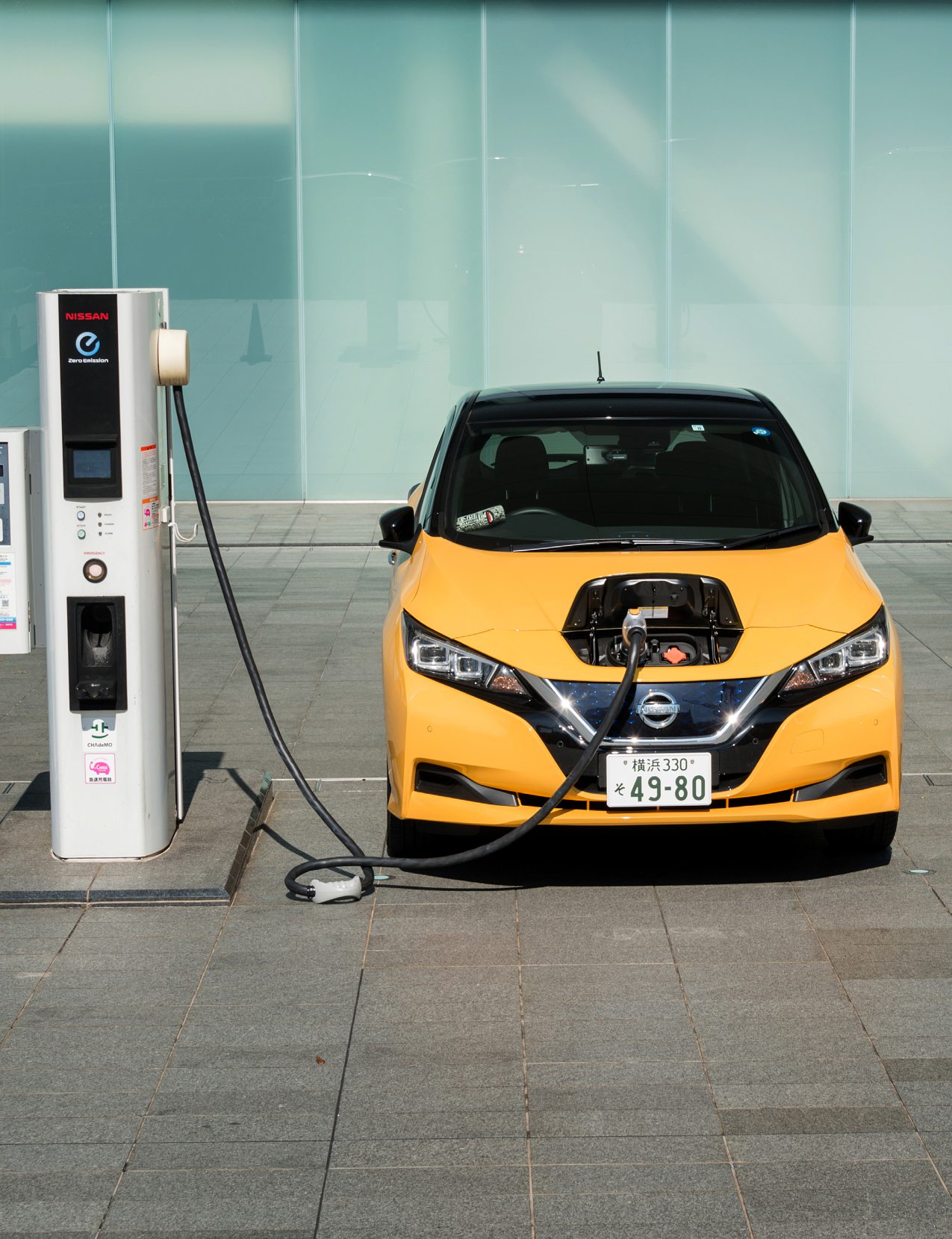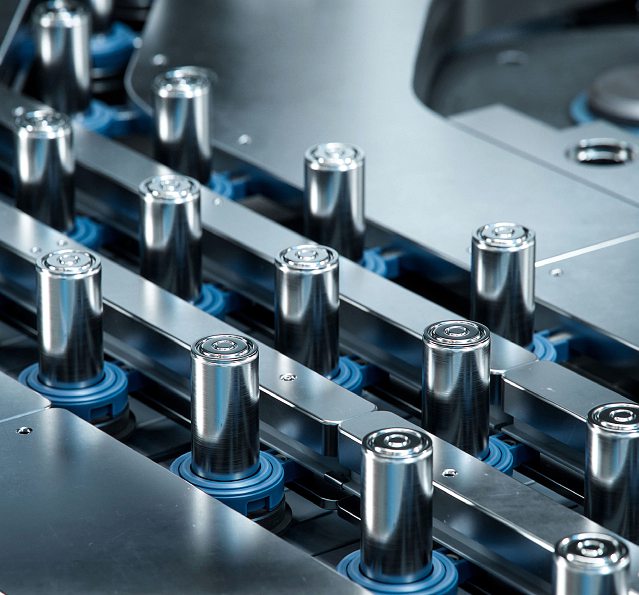Africa’s big plans for lithium
By 2030, Africa will be producing half a million tonnes of "white gold", which is twelve times more than it does currently. Producer countries are looking to locally refine this "white gold", which is the linchpin of our energy transition, to carve out a niche for themselves in a highly strategic value chain.

The International Energy Agency (IEA) estimates that global demand for lithium is set to increase more than forty-fold by 2040, as internal combustion engines are phased out and the post-oil era finally takes hold in response to climate change caused by greenhouse gas emissions. Based on the IEA's calculations, global demand for lithium tripled between 2017 and 2022 as a result of the staggering growth of the battery market, which accounts for three-quarters of current sales of this white alkaline metal, which is highly sought-after for its ability to store a maximum amount of electricity. The lithium market appears to be growing at an even faster rate than cobalt and nickel, the energy transition's two other key minerals. Demand for these metals has risen by 70% and 40% respectively over the past five years.
This new 'white gold' rush is a major boon for the continent, which possesses some of the world's largest lithium reserves, particularly in Zimbabwe, the Democratic Republic of Congo, Namibia, Zambia, Algeria, Mali, Ghana and Nigeria. According to Singapore-based commodities broker Trafigura, the continent is expected to produce around half a million tonnes by 2030, up from 40,000 tonnes last year.
Around 9.5 million electric cars were sold worldwide in 2023, compared with 7.2 million in 2022. Tesla, the US car manufacturer, is still the market leader, with around 20% of the market, but Elon Musk's company is seeing China's BYD inching closer as it gets ready to overtake Tesla in terms of sales volume in 2024.
However, the rise in demand for lithium and the replacement of combustion engine cars by electric cars is not translating into a steady rise in the price of the mineral. Far from it in fact: having reached 84.5 dollars in November 2022, the price of a kilo of lithium collapsed over the course of 2023, plummeting by more than 80% to just fifteen dollars!
The crash originated in China, which has become the world's biggest EV market, driven by the government's determination to combat the disastrous air pollution in its megacities. However, after the government scrapped subsidies for the purchase of electric vehicles, sales have slowed, rising by “only” 25% in 2023 after having doubled in 2022.
VOLATILE PRICES AND GEOPOLITICAL IMPACTS

This extreme price volatility prompted the IEA to issue a warning to market players. “The cost and speed of energy transitions will depend heavily on the availability of critical materials”, it stated at its first international summit on critical materials in Paris last September. The geopolitical context is also impacting the market: the war in Ukraine is forcing the European Union to build up ‘strategic reserves’. The EU, which intends to ban internal combustion engines by 2035, wants to avoid disruptions in the supply of critical materials, particularly lithium, two-thirds of which is refined in China.
The African countries where this ‘white gold’ is mined are therefore central to these economic and geopolitical issues. In Zimbabwe, the continent's leading producer, Chinese companies have invested over a billion dollars in local deposits, mainly at the Bikita mine, where reserves are estimated at around 11 million tonnes.
In the DRC, the contract to mine a gigantic deposit, estimated at 6.6 million tonnes in Manono in Tanganyika was initially awarded to Australian mining company AVZ by the authorities and state-owned Congolese mining company Cominiere. However, last year the state revoked the license because of delays, and instead entrusted the mining of the deposit to Zijin Mining, a Chinese company already operating copper and cobalt mines in neighbouring Katanga. Believing it was wrongly deprived of its rights, AVZ lodged an appeal with the International Chamber of Commerce, asking it to arbitrate the dispute.
The circumstances surrounding this transaction remain rather opaque. According to a confidential letter received by Africa Intelligence, the money went more or less directly to a Congolese NGO, Le Bouclier, to provide aid to victims of the conflict in the east of the country. The NGO is chaired by Jean-David E'ngazi, who is himself a director of the state-owned company Cominiere.
BENEFICIATION TO BOOST BENEFITS
This information aroused the ire of DRC civil society, in particular that of anti-corruption platform Le Congo n'est pas à vendre ( CNPAV – Congo is not for sale). Pending clarification of the situation, the Manono region, which was a tin producer in the 1980s, is eagerly awaiting the official opening of the new mine, in order to at last revive its industrial and mining past.
According to NGO Global Witness and environmental news website Mongabay, artisanal miners are prospecting for lithium, sometimes going as far as employing children and illegally selling the mined mineral to intermediaries. Thirteen Chinese nationals were recently arrested in the Congo for smuggling.
This sudden windfall has led most of Africa's lithium-producing states to reflect on strategies to avoid repeating the mistakes they made in the 1960s with oil, when they simply exported the raw materials. Instead, they intend refining the lithium locally so as to move up the value chain, create more skilled jobs and increase tax revenues. Zimbabwe, the continent's leading producer, has banned the export of raw lithium and is introducing heavy taxation on ore concentrates.
Governments have given operators until 30 March to submit their refining plans. “No new licences will be granted without an approved beneficiation plan”, warned Minister of Finance and Economic Development Mthuli Ncube recently. Namibia and Tanzania, which are in the throes of industrialisation, have taken similar measures.
Indeed, everyone is reminded of the case of Indonesia which, after a ban on the export of raw nickel in 2014, opened thirteen factories in the space of a decade. However, Huayou, a Chinese company operating in Zimbabwe, argues that this requirement for the ore to be processed locally is a difficult one to implement, pointing out that “Zimbabwe lacks reliable renewable energy, sulphuric acid and other inputs required to refine battery-grade lithium”.